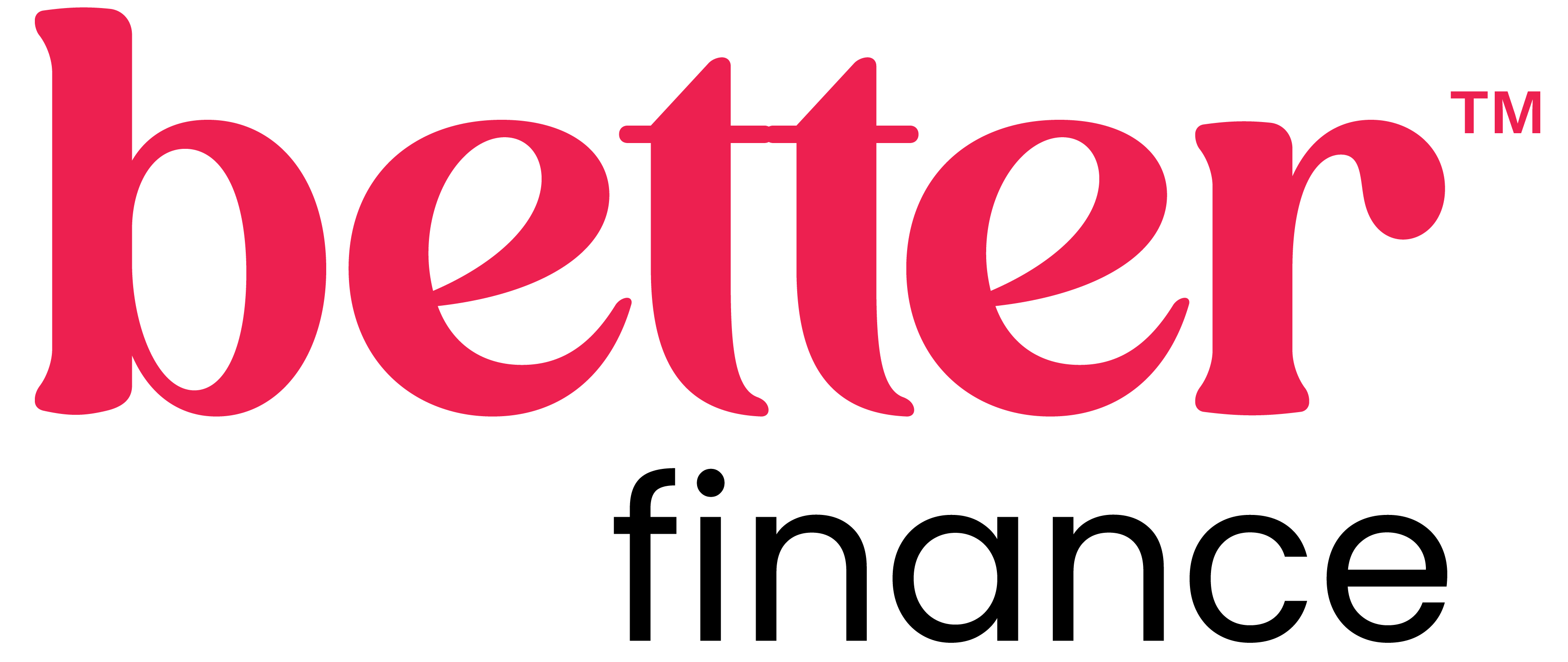Understanding Personal Loans: What to Know Before You Apply

If you're looking for a loan to fund a significant purchase or consolidate debt, it’s important to take the time to understand the loan terms.
Loan agreements are legally binding contracts with terms that vary based on the loan type and lender.
So, even if you're in a tight spot and require the money quickly, knowing what you're getting into is essential before signing on the dotted line.
In this personal loan guide, we explain what you need to know when applying for a personal loan, including the easy-to-understand aspects as well as terms that can be more puzzling, so that you can make an informed decision.
What Is a Personal Loan?
A personal loan is a loan that you take out in your own name, rather than that of a company or other entity.
You borrow a set amount of money from a lender and pay it back over a number of months or years, plus interest.
Loans can be secured or unsecured. When a loan is secured, the lender registers an interest in an asset you own, such as a car or property, as security and can sell it to recover what it is owed if you do not pay back your loan.
When a loan is unsecured, the lender does not have this additional security; this may mean a higher interest rate than a secured loan, or limits on how much you will be able to borrow, within your affordability.
People apply for personal loans for lots of reasons, including purchasing a vehicle or other big-ticket item, or paying for travel, weddings or other family expenses.
Six Essential Factors to Consider Before Applying for a Personal Loan
There are some key questions to consider during the personal loan application process.
The answers you provide will not only help determine a suitable loan but also a lender that understands your needs.
These include:
Assessing Your Financial Situation
What is your current level of income, expenses and other commitments? What are your financial goals?
Understanding Your Borrowing Needs
How much do you need to borrow? What level of repayments are you comfortable with? Lenders are required to ensure that any loan you take out is manageable for you, but it’s a good idea to check what you think your budget can absorb.
Secured vs Unsecured Loans
Personal loans can be secured or unsecured loan types.
When a loan is secured, the lender registers an interest in an asset you (usually) own as security. If you don’t repay your loan, the lender can take steps to sell this asset to recover what it is owed. Assets used for secured loans are usually vehicles or property.
With an unsecured loan, there is more risk for the lender because it does not have this security. As a result, you may be able to borrow a higher loan amount with a secured loan than an unsecured one, depending on your situation and affordability. We can help you work out what might be appropriate.
Additional Rates and Fees
It is common for lenders in New Zealand to charge a loan establishment fee. This reflects the cost of setting up a loan.
You may also be charged fees if you miss a payment or if you want to repay your loan early. We can help you work through the fees involved in any loan you’re considering.
Credit History
Your credit history is an element most lenders look at when approving and rejecting loan applications. Even if you're able to find a financial institution that will lend you money with a bad credit score, the loan usually comes with higher interest rates than may be offered to someone with a good credit rating.
A good credit score shows lenders that you make timely payments to your credit obligations. As such, you may get approved for a higher loan amount (subject to affordability and your needs) with a lower interest rate than may be offered to someone with a low credit score. So, before applying for a loan, ensure you have a good or excellent credit score ranging from 600 to 750. Any figure below that may get you less favourable loan terms.
Ability to Repay the Loan
Will you be able to repay the loan within the agreed time? Before obtaining a personal loan, it is essential to plan the repayment details early to ensure your income is sufficient to cover the loan plus your other debt repayments and expenses. You can use a personal loan calculator to see what your repayments are likely to look like.
Lenders will not lend you more than you can afford to repay, but it is often a good idea to make sure you’re comfortable with the repayments, too.
Step-by-Step Guide: How to Apply for a Personal Loan in New Zealand
-
Step 1: Research your options. better finance™’s website has information about the sort of interest rate you might be charged for a loan, and calculators to help you model what your repayments might look like.
-
Step 2: Check eligibility criteria (age, residency, income, credit history). We can answer questions about what you may be able to apply for.
-
Step 3: Gather required documentation (ID, proof of income, bank statements, etc.) This makes the application process much smoother.
-
Step 4: Calculate how much you need to borrow. We can help give you an idea of what you may be able to afford.
-
Step 5: Submit your application. better finance™’s simple online process makes it straightforward
-
Step 6: After you apply, your application will be assessed. If it’s approved, you’ll need to agree on the loan structure and sign your loan agreements. It’s important to understand your agreement and what you can expect from your loan.
-
Step 7: Then, the funds will be disbursed – potentially to a dealer if you’re buying a vehicle that will be used as security or to you directly if you’re using the money for other purposes.
Standard Terms You'll Encounter in a Personal Loan Agreement
When reading the loan agreement fine print, there are terms you'll come across that you’ll need to understand before applying. These include:
-
Interest Rate: The interest rate refers to the amount of interest you are charged on the principal you’ve borrowed.
-
Amortisation Schedule: This is a complete structure of the payment schedule,
including the loan amounts payable until the final repayment date. -
Collateral: Collateral is any asset that will be used by the lender as security for your personal loan.
-
Co-Signer: A co-signer may also be referred to as a co-borrower. This is an individual who signs your loan agreement with you and assumes liability in case you default on your
personal loan contract. -
Credit Score: Your credit score is a number that reflects how creditworthy you are. It indicates to a lender how likely you are to repay your loan, based on your payment history on bills and other lending. The higher the number, the better the score.
-
Credit Check: A credit check is done as part of the application process to check your creditworthiness. It will show things like any defaults you might have or any bills you’re late paying.
-
Principal: The principal is the amount that you have borrowed.
-
Term: The term is the amount of time you have to pay back the loan.
-
Secured Loan: A secured loan is one for which the lender has registered a security interest in an asset you own.
-
Unsecured Loan: With an unsecured loan, the lender does not have a security interest in an asset you own.
-
Repayment Schedule: The repayment schedule sets out the amounts you need to pay and when.
-
Early Repayment Fee: Sometimes you may be charged a fee if you pay off your loan early.
-
Loan Agreement: The loan agreement is between you as the borrower and the lender. It sets out the terms and conditions of your loan.
-
Default: If someone does not make their loan repayments as agreed, they can be said to have defaulted on their loan. If you think there’s a risk you might default, get in touch with us at better finance™ or your lender as soon as you can.
-
Financial Hardship: You can ask a lender to consider a change to the terms of your loan if you have suffered a hardship that you could not have seen coming, such as illness or injury, the loss of a job, the end of a relationship or the death of a partner.
-
Guarantor: A guarantor is someone who promises to make the repayments on a loan if the main borrower cannot. A guarantor needs to be able to satisfy the lender that they can also afford to repay the loan, with the same affordability criteria used to assess the main application.
Tips to Improve Your Chances of Approval
There are a few ways you may be able to improve your chances of having your loan approved.
-
Boosting your credit score: Particularly if your score is low, increasing it will make your application more attractive to a lender.
-
Reducing existing debts: Reducing what you already owe will reduce your overall debt burden and the amount of income you have committed to debt repayments.
-
Ensuring stable income: It helps if you can show a history of reliable income. If you’ve recently changed jobs or been through a period of instability, it could help to wait a few months before you apply.
-
Providing complete and accurate information: Lenders need complete and accurate information to make their decisions. If you can supply this upfront at the start of the process, it should make it run more smoothly.
Common Mistakes to Avoid When Applying for a Personal Loan
Applying for too many loans at once: It can be a red flag if you have a lot of applications noted on your credit file. At better finance™, we can help with this by identifying which lender is likely to be a good option for you.
-
Borrowing more than you need: Lenders won’t lend more than you can afford, using their servicing calculations, but it makes sense not to borrow more than you need. A smaller loan may be quicker to pay off and will cost less in interest overall.
-
Ignoring the fine print (fees, interest rates, penalties): It’s important to know how your loan works and what you’re expected to pay. If you’d like help understanding these points, our team can answer any questions you may have.
Frequently Asked Questions (FAQs)
-
How long does approval take?
It could be quicker than you expect. better finance™’s online system may get you an answer within a day or two.
-
Can you apply with bad credit?
You can apply for a loan with bad credit. Sometimes it’s harder to get a loan, but the better finance™ team can talk to you about your options.
-
What if you’re self-employed?
Self-employed people can apply for loans. You might need some additional paperwork to prove your income, but we can work with you on this.
-
Are there fees for early repayment?
There can be, it depends on your loan. We can help you work out what you might be charged.
Ready to Find Out More?
The better finance™ team is here to help you take the next step for your personal loan. Get in touch with us today, and we’ll help you work out what your options are and how they might get you to your goals.





